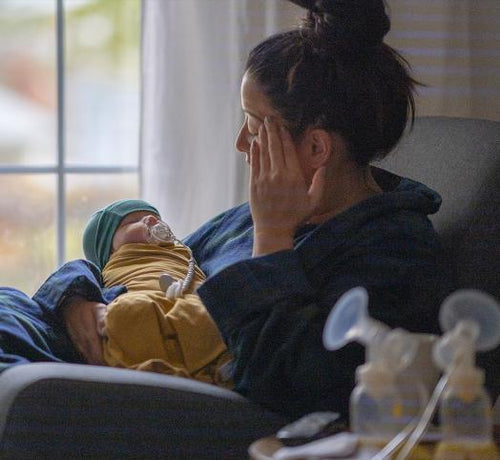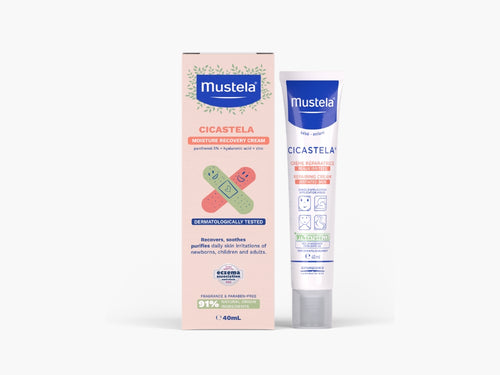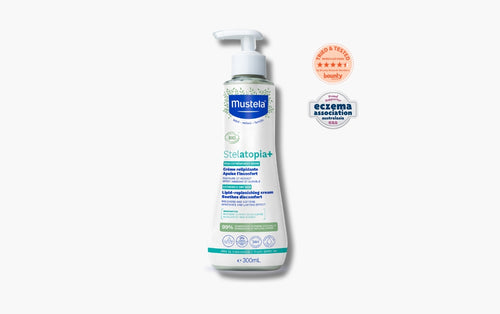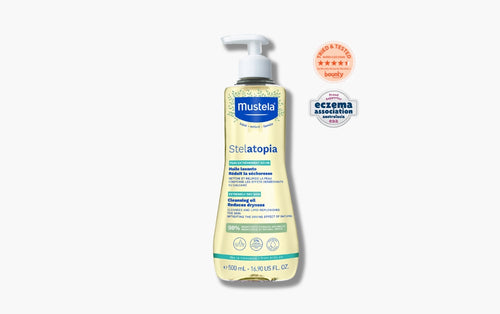What is “postpartum”? Ask the question around you… You may be surprised by how little people know about it. And for a good reason: while pregnancy and childbirth are widely covered subjects, it’s more difficult to find information on the period following childbirth. Given the widespread taboos (it’s not exactly glamorous) and certain misperceptions on the subject, we figured it was about time to shed all the necessary light on this period.
1. What exactly is postpartum?
Postpartum is one of the most distressing times in a woman's life... and it starts right after childbirth! If this stage feels so strong – a combination of great happiness and great dismay – it’s because it’s like a complete re-questioning of one's life, on all levels.
This is the time when you discover your role as a mother (sometimes the very opposite of what you imagined), how different your body has become, the time it takes to recover, the tsunami you as a couple may go through, what it’s like to go back to work etc.: all your life markers are turned upside down!
Now there’s a baby (or perhaps 2 or 3!) you need to take care of, and most of the time, Mum tends to leave her own needs (sleeping, eating needs etc.) behind.
It is common for new parents to experience a range of emotions, both positive and negative, in response to the challenges of new parenthood. Many people find that pregnancy or having a baby is more challenging than they anticipated – this is a common experience of re-adjustment.
2. For how long does the postpartum period last?
Although you may often read that the postpartum period lasts up to 6 weeks, it can last much longer. Anna Roy (midwife and author) told us that hers lasted 5 years because she had her second child during her first postpartum.
3. Bladder weakness, pain, periods come-back, pelvic floor rehab…: What your body endures during this period
Indeed, too little is said on what your body goes through during this period. On top of the emotional roller coaster, most women also experience physical discomfort (to varying degrees).
The list stretches from hemorrhoids, back pain, lochia (postnatal periods which can last from 7 days to 6 weeks), to cramping or “afterpains” (when the uterus contracts, a few hours to a few days after delivery) etc. And if you’ve had an episiotomy (a perineum incision to ease delivery or to preserve the perineum’s muscular structure) or perineal laceration (which may happen naturally during childbirth), then you will have a “surgical wound” that you will have to take care of.
After 9 months of pregnancy and childbirth (that may have been complicated), your body will also need time to recover. Overnight, your round belly will become soft, the weight you put on won’t generally disappear as quickly as expected, you will also have to rehabilitate your pelvic floor etc.

4. Can you prepare for postpartum? And how?
From an emotional standpoint, you won’t be able to fully prepare for postpartum, as this experience is so unique – although talking about it and discussing it can still be very useful. But from a more rational perspective, here are a few “organizational” tips to help make your return home (and the following months) a little smoother.
- Before you give birth, for instance, identify the people who could come and lend you a hand: people you trust who could keep an eye on your baby when the baby sleeps, while you’ll take some time for yourself.
- When you come back home, also try to rest as much as possible (!) and try delegating household tasks (big or small) to a maximum. Of course, if you already have a child or if you’ re on your own, the idea of “doing nothing” will sound impossible. Still, do think of a friend, neighbor, or someone in your family who could help you out with something.
- More tips: before you give birth, plan your meals and freeze them.
Looking after yourself is just as important as looking after your baby. There are some simple things you can do to nurture yourself.
Using a combination of different coping skills can help you to manage stress and uncertainty in any situation.
Read on to learn more about:
-
Solution-focused coping
-
Emotion-focused coping
-
The 5 senses exercise
5. Postpartum, postpartum depression and baby blues: are they all the same?
No, these are three different things!
Postpartum, as explained above, is a stage: the one that starts after you give birth. You may feel some physical constraints, fatigue, pain...but it has nothing to do with strong emotional discomfort.
Postpartum depression, on the other hand, is a pathology. It affects 10 to 30% of women (depending on the studies) and calls for a psychotherapeutic follow-up and treatment if necessary.
Signs of postpartum depression: if, after several weeks, you still feel unhappy or overwhelmed or if you have little interest in your baby.
And what about baby blues? Baby blues can be defined as “an emotional roller coaster” experience for the mother that takes place in the first days after childbirth. Symptoms are irritability, anxiety, vulnerability, and mood swings. This is a transient reaction explained by physiological changes (significant hormonal drop), increased stress and lack of sleep. It’s generally temporary and lasts from a few hours to 15 days. In most cases, symptoms subside without intervention.
Having perinatal anxiety or depression does not make you a ‘bad parent.’ You are not alone, and you don’t have to go through it alone.
EPDS?
This is a postpartum depression screening tool. It includes 10 questions that need to be completed online, 3 to 5 weeks after delivery. If your score is higher than 10, don’t hesitate to talk to your midwife or your doctor for support. And if you answer “yes” to the last question: “Have you already thought of harming yourself?”, consider it a medical emergency, and seek immediate (medical) help.
Of callers to the PANDA National Perinatal Anxiety & Depression Helpline, 63 percent had not disclosed to a healthcare provider; 90 percent had not shared their concerns with their obstetrician or midwife. Routine screening is recommended and now mandatory in pregnancy, but how it is administered is also crucial: ‘As with any screening tool, the EPDS should complement rather than replace clinical judgement.
'Women must be comfortable about the process and have a trusting relationship with their healthcare professional... discussing women’s current life situation is also likely to make screening more acceptable and lead women to offer more honest response'
Factors that Contribute to Perinatal Anxiety & Depression
There are a number of factors that can contribute to developing perinatal anxiety and depression. These include:
- History of anxiety and depression
- Family history of mental illness
- Previous reproductive loss (infertility, IVF, miscarriage, termination, stillbirth, death of baby)
- Difficult or complex pregnancy
- Birth trauma
- Premature or sick baby
- Challenges with feeding or settling
- Sleep deprivation
- Pre-existing physical illnesses
- Financial stress
- Relationship stress
“My family noticed that things didn’t seem right, and urged me to speak to my Nurse or GP. But I was too afraid that if I told anyone my horrible scary thoughts, they would take my daughter away.”
Many callers have never experienced mental health challenges. For some, cultural or family attitudes towards mental health and help-seeking can be a barrier. It’s important to know that PANDA's counsellors are respectful and compassionate towards all their callers, whatever their background, nationality, beliefs or sexuality.
Carers and family can also call the PANDA Helpline if you are concerned about a loved one.
PANDA National Helpline (Monday to Saturday) 1300 726 306
panda.org.au
















